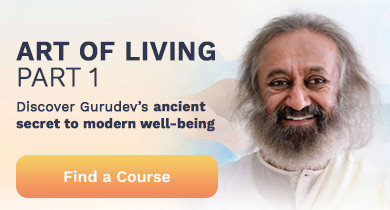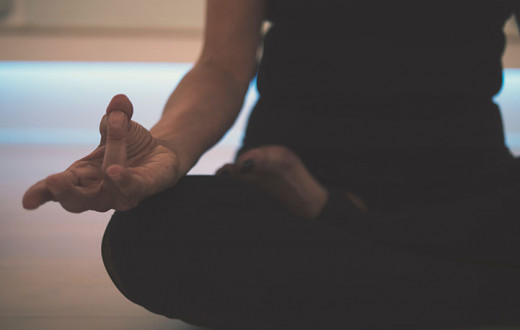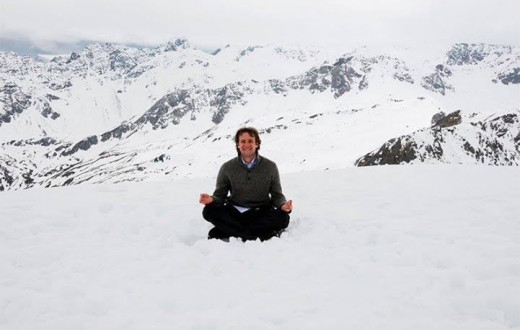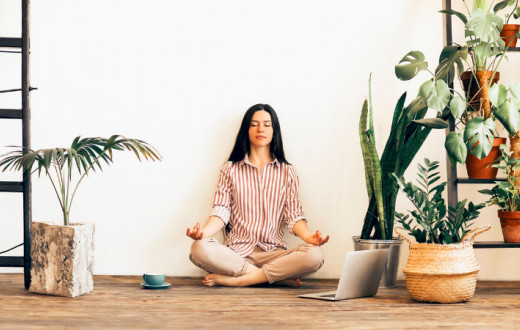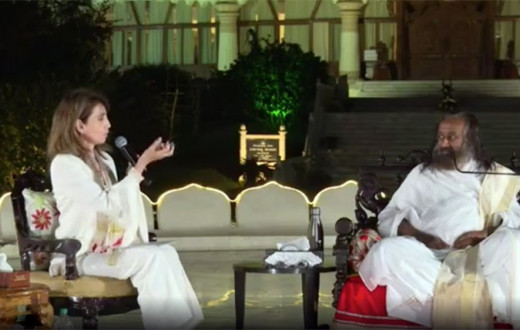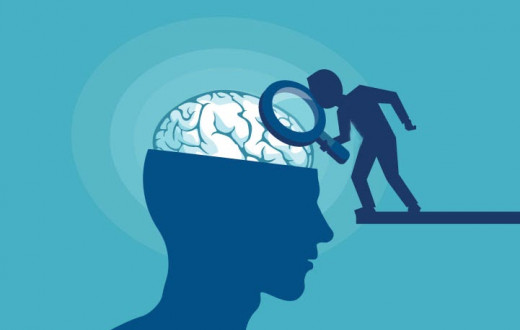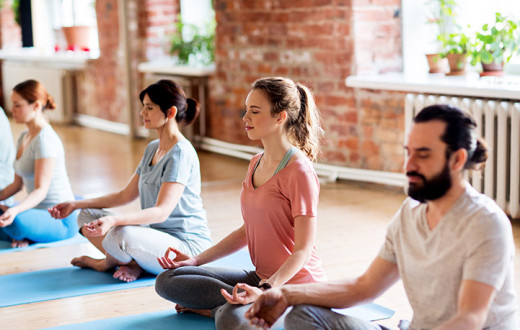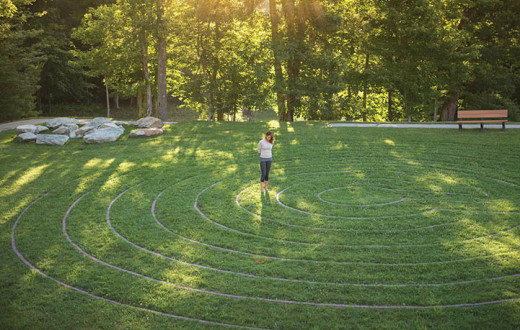
Have you noticed that sometimes it just feels hard to meditate? You may sit with good intentions to meditate, but what happens instead could look more like a raucous train of thoughts than a pleasant slip into infinity. Well, the good news is that finding the right timing can make meditation easier, more effective, and more relaxing.
Starting a meditation practice
Before we talk about timing, let's look at what makes a practice of meditation effective. The first thing is consistency. Doing meditation regularly over time yields better fruit than one-off sits. The more you practice, the better it gets. And you'll find with time that meditation helps improve the quality of your day-to-day life. What does this look like?
Fewer trigger reactions & more helpful responses
Feeling less swayed by the moods of the mind
More ease and relaxation
Clearer communication
The American Psychological Association has written about how meditation can improve both mental and physical health. Regular practice helps ingrain a pattern of calm and clarity in our minds for the long run. When asked when is the best time to meditate the answer is: regularly. Making a regular meditation practice part of your daily routine is the first step to unlocking the mental and health benefits of meditation.
Meditation resembles a fitness regimen in this way. While one run around the block may feel great (or awful if you're out of shape!), a daily program of exercise helps you to feel better all year round. So for more positive mental health all year round, a regular meditation practice makes a huge difference.
Morning meditation timing
Morning meditations are beautiful, especially if you can wake up before sunrise while the world is still quiet. What happens when nature is still and the commotion of daily life has yet to start? In this atmosphere of harmony, experiencing harmony becomes that much easier. Experts have long considered the early twilight hours to be one of the best times to meditate. Try it for a few days and you'll start to notice the difference.
What are the other positive benefits of meditating first thing in the early hours of the morning? When you begin meditating early, you sidestep:
Being interrupted by texts and calls
Feeling like you need to be available to other people
Daily activities and people needing your attention
This means you'll naturally feel more at ease and able to relax completely, which is very important for deep meditation.
When you start the day with morning meditation, you prime your mind to be ready for the entire day. You can flow into the day ahead with newfound clarity, ready to engage and act from a space of peace, regardless of what life throws at you.
Check out this short video about finding the best time to meditate.
A few tips for morning meditation
Find a quiet space where you're least likely to be disturbed
Aim to meditate at the same time every morning. Meditating at the same time builds a life-supporting habit
On waking or right after meditation, take a few moments to feel grateful
Meditate sitting up so that you are fully awake and remain alert. Lying down for morning meditation can all too easily become round two of morning sleep
Power up with a lunch break meditation
While the morning is a great time to meditate, a lunchtime meditation can also be wonderful for your well-being. It can reduce stress from a long day. Taking a few moments to detach from your daily schedule and rest in the present moment can bring lots of energy. The key thing here is to avoid meditating on a full stomach. Eat after meditating, unless you particularly enjoy the sensation of digestion (just kidding).
Meditating on an empty stomach will give you a deeper experience, regardless of the time of day. Aim for one hour after a snack or two to three hours after a full meal. So if you eat breakfast between seven to nine, sometime around noon or one will make a great meditation break.
Practicing meditation with a busy schedule
When you struggle to juggle your work life, personal life, and everything else, meditation is key for your well-being. Don't beat yourself up if you miss an early morning meditation. Just keep going. Keep waking up to meditate, keep on sitting regularly, and keep on making it into your schedule. If you're just getting started, guided meditation can be a good place to start.
You can build your practice of calm from wherever you are. Start with ten minutes. Learn from a certified instructor. Gradually increase your time. Meditating for twenty minutes is enough for a full session. You don't need to meditate for hours on end to get the benefits of meditating.
Ultimately, the best time to meditate is when you can. While this can sound silly, it means don't postpone meditating while waiting for the perfect setting or the ideal time. Rather, start now, wherever you are. Find the time that works for your daily schedule. One student asked me, “I have a really busy schedule. I work throughout the day, then the kids come home, and I cook. So it's really difficult to find the right time to meditate. Is it okay to do it later on in the evening?” Yes, certainly! Find the right routine and the best time that makes sense for your life.
Whenever that time may be, take advantage of having the time to meditate and find that source of calm within yourself. It is one of the biggest treasures you can find.
For a free intro to breath and meditation, check out one of our daily sessions by clicking on the image below.

